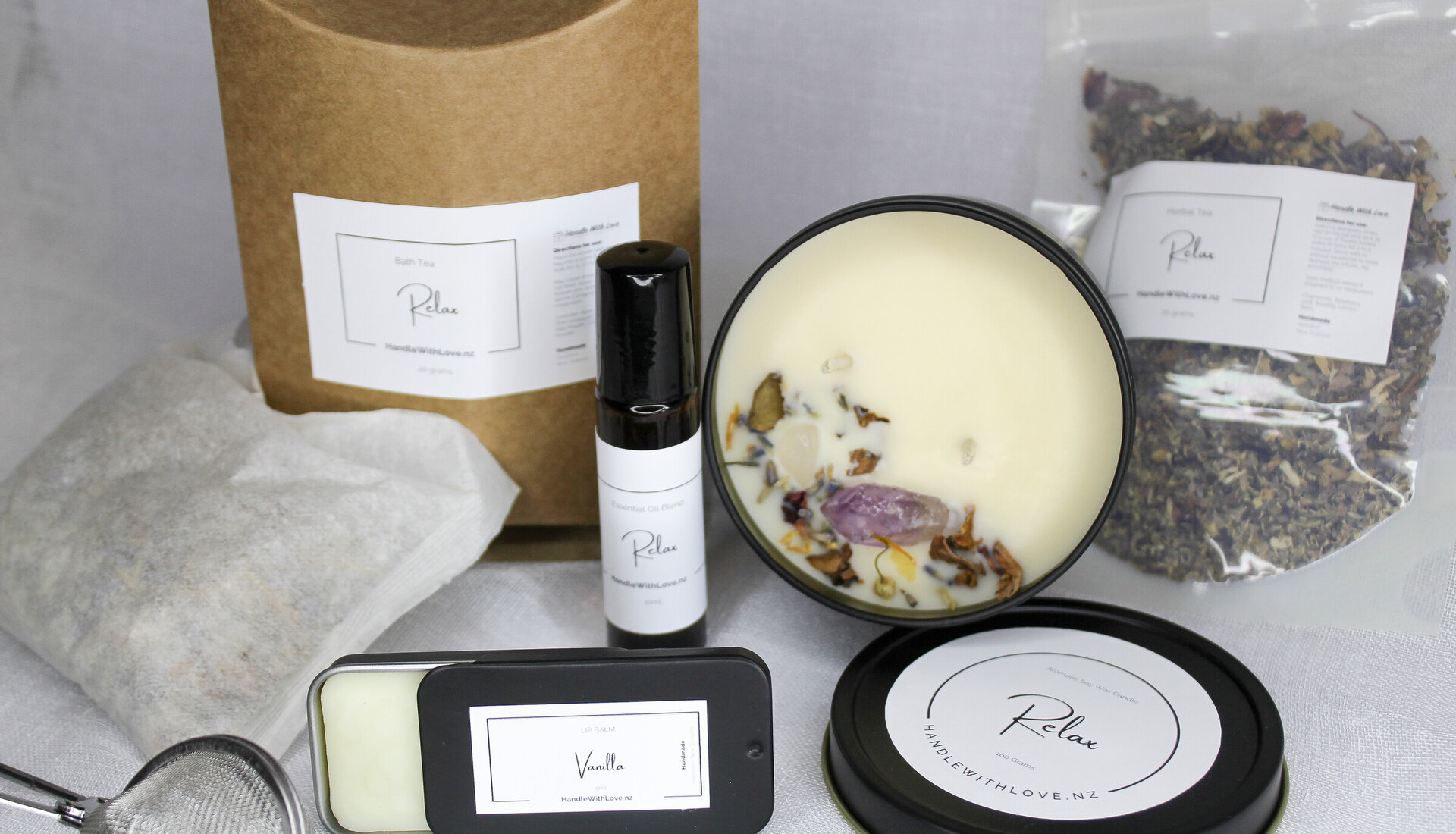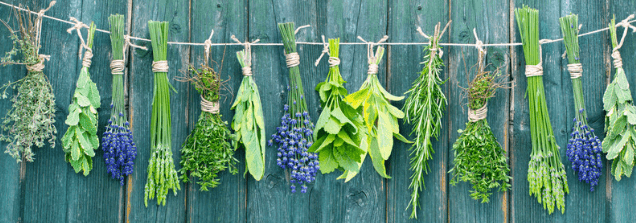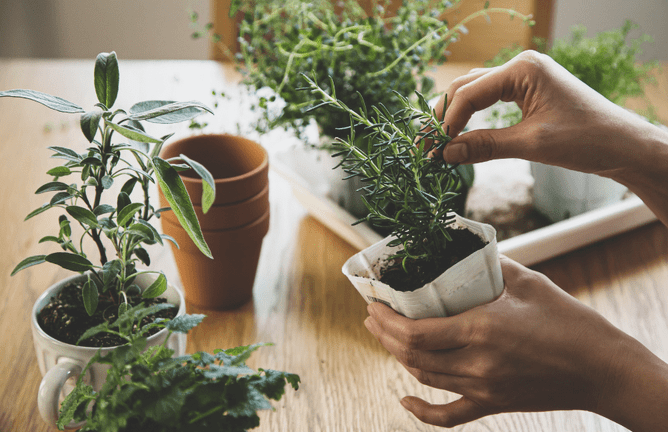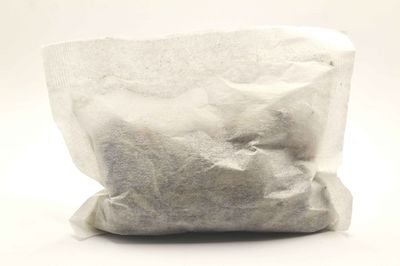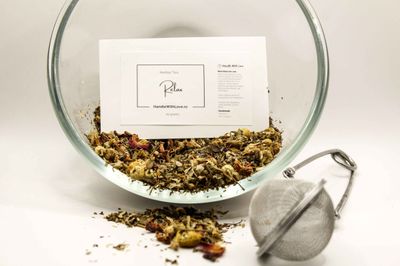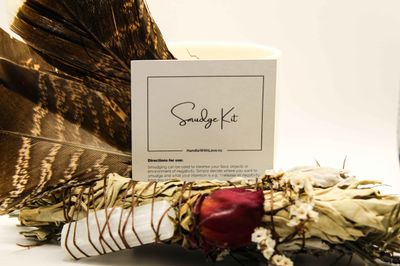In the fast-paced world we live in, with its constant demands and stressors, finding moments of peace and serenity can feel like a luxury.
However, nature has provided us with a remarkable source of magic that has been enhancing human wellbeing for centuries – herbs.
These humble plants, often overlooked in our bustling lives, hold a treasure trove of benefits for our physical, mental, and emotional health.
The Healing Power of Nature
Herbs have been used for medicinal purposes across diverse cultures throughout history. Ancient civilisations, from the Egyptians to the Greeks and Chinese, recognised the healing potential of herbs and incorporated them into their traditional medicine practices. Today, modern science is catching up and validating the therapeutic properties of these botanical wonders.
But how do they help our wellbeing?
Physical Wellbeing
Herbs are rich in vitamins, minerals, and antioxidants essential for maintaining optimal health. From immune-boosting echinacea to digestion-soothing peppermint, herbs can be incorporated into our diets to support various bodily functions. Additionally, herbal teas, tinctures, and infusions provide a natural and gentle way to address common ailments, from headaches to insomnia.
Example herb and its' use: Calendula for Wound Healing
Known for its vibrant orange-yellow flowers, Calendula officinalis, commonly called pot marigold, is more than just an eye-catching plant. It's a veritable healing powerhouse especially when it comes to skin and wound healing.
A simple way to utilise calendula's healing properties is by preparing a calendula wash or compress. Steep a handful of calendula flowers in boiling water for about 10 minutes. Once it cools, it can be used to clean wounds or as a compress on inflamed skin areas.
Remember, before starting any new treatment, it's essential to test a small patch of your skin first to rule out any allergic reactions. Also, while calendula is generally safe for most people, it should not be used on deep, open, or oozing wounds without consulting a healthcare professional.
Mental Clarity
The aromatic compounds found in many herbs have the power to influence our mood and cognitive function. For instance, lavender is renowned for its calming properties, while rosemary has been linked to improved memory. Incorporating these herbs into our living spaces or using essential oils can create a soothing atmosphere conducive to mental clarity and focus.
Example herb and its' use: St. John's Wort for Mood Boost
St. John's Wort is well known for its bright yellow flowers and myriad of health benefits. For centuries, it has been utilised in traditional medicine, particularly for its mood-boosting properties.
Add 2 teaspoons of dried St. John's Wort flowers (in a tea strainer) to 1 cup of boiling water (honey or lemon to taste). Let it steep for 10-15 minutes and then drink for a quick mood boost.
It is generally considered safe to ingest St. John's Wort, but it can interact with certain medications (including contraceptives and antidepressants), so it's essential to consult with a healthcare provider before using.
Emotional Balance
Herbs can play a significant role in managing stress and promoting emotional wellbeing. Adaptogenic herbs like ashwagandha and holy basil help the body adapt to stressors, while chamomile and passionflower have calming effects on the nervous system. Harnessing the power of these herbs through teas, aromatherapy, or herbal supplements can contribute to a more balanced emotional state.
Example herb and its' use: Lavender for Anxiety and Insomnia
Lavender, with its fragrant purple flowers and soothing scent, is a gem in the world of herbal remedies. It has been used for centuries for its calming and sleep-inducing properties.
Try 1 tablespoon of dried lavender flowers (in a tea strainer) in 1 cup of boiling water (honey or lemon added to taste) and drinking as a tea 30 minutes before bed to help reduce anxiety and promote a peaceful night's sleep.
It's important to note that while lavender is generally safe for most people, some may experience allergic reactions.
Connect With Nature!
The simple act of cultivating and caring for herbs can itself be a therapeutic practice. Whether you have a sprawling garden or a small windowsill, growing herbs allows you to reconnect with nature. The rhythmic tasks of planting, watering, and harvesting can be meditative, providing a much-needed break from the hustle and bustle of daily life.
Herb Gardens
Creating a herb garden, no matter how small, is a rewarding endeavor. It not only provides a fresh supply of herbs but also offers a sanctuary for relaxation. The vibrant colours, fragrant scents, and the tactile experience of working with soil can have a grounding effect, promoting a sense of calm and connection to the natural world.
Herbal Rituals
Introducing herbal rituals into your daily routine can enhance overall wellbeing. Whether it's starting the day with a cup of energising herbal tea, incorporating herbs into your skincare routine, or winding down with a relaxing herbal bath, these rituals create moments of mindfulness and self-care.
In the magic of herbs, we find a timeless and accessible means of promoting holistic wellbeing.
From the physical benefits of herbal remedies to the mental clarity and emotional balance they offer, herbs have the power to enrich our lives. As we continue to navigate the challenges of the modern world, let us not forget the wisdom of nature and the healing touch of the herbs that have been our companions throughout history.
Embracing the magic of herbs is a journey toward a healthier, more balanced, and harmonious life.
